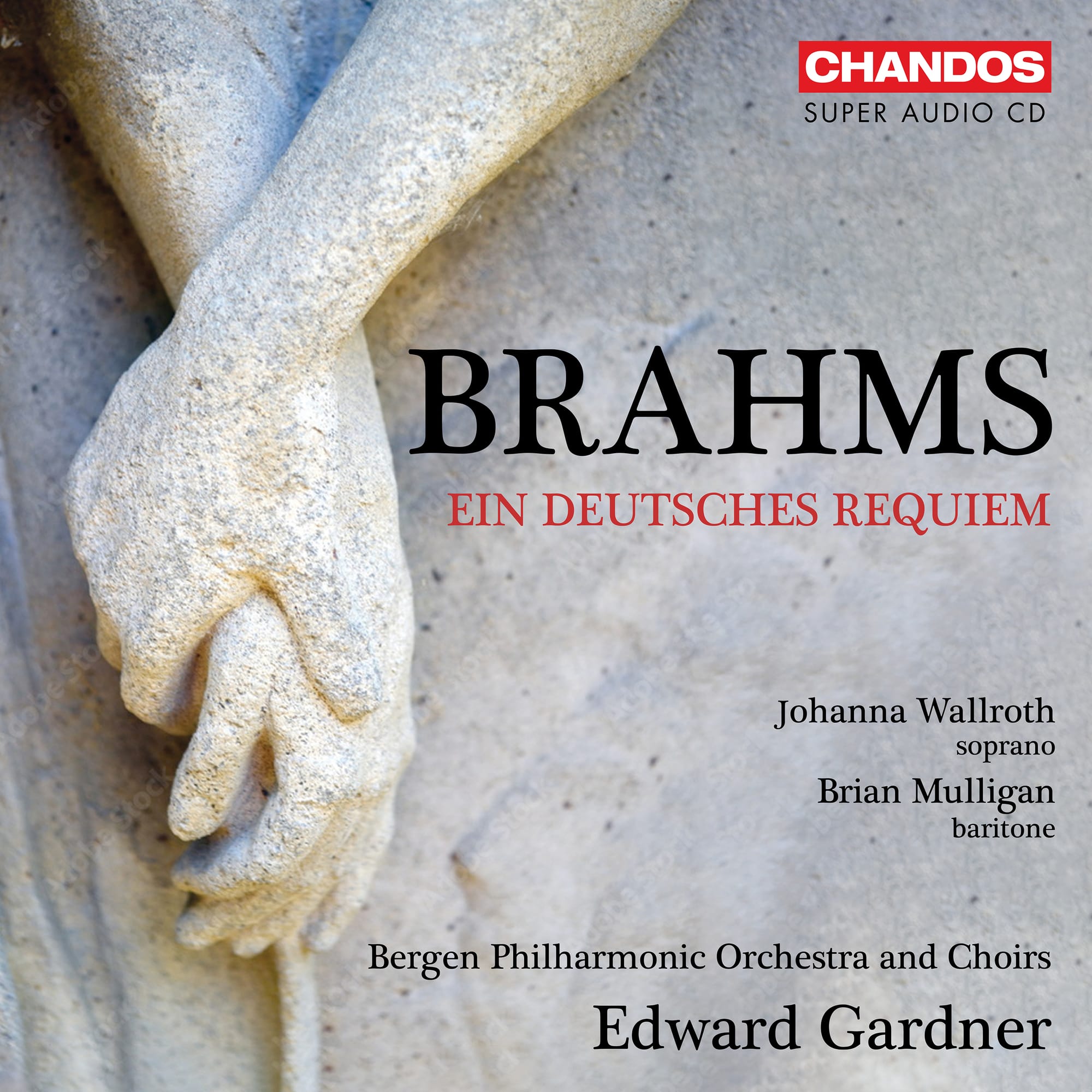
One of the great choral works, Brahms’ Ein Deutsches Requiem is often thought of as a humanist requiem, a work for the bereaved passages form teh Bible sleeked by Brahms himself. It takes a great performance to really plumb is depths: and Gardner gives us a wonderful modern performance (we’ll talk about som classics later).
The opening “Selig sind” moves and yet holds so much warmth.
The symphonic canvas of the second movement is well realised here: there is one huge build-up to a crushing, unstoppable climax. Gardner takes the piece quite swiftly, adding point by emphasising timpani on the approach t o the great choral statement. And the quieter “So said man gduldig” benefits from the pace, too. the Bergen choir is superb, the higher voices, sopranos particularly, in perfect control of breath and tone production. he statement of “Aber des Herren Wort bleibet in Ewigkeir” (Peter) has great impact, a real tightening and opening out.
Brian Mulligan is a strong baritone soloist in “Herr, lure doch mich”; and again a healthy onward trajectory adds significant data to the choral moments later on:
I am less taken by the soprano soloist, Johanna Walroth. Piercing tone doesn’t always equate to purity, which is a pity. Bu the Deutsches Requiem is a choral-led and the Bergen forces (both choir and orchestra) make for an awesome. The choral cries of “death where is thy sing” are properly confrontational, leading to possibly the most energetic fugue in this penultimate movement out there.
VI is like a Brahms operatic choral scene. This is no Hebraic interpretation; Gardner seems Brahms’ faith as mobile, fervent and vital.
Released January 31 (2025), this disc presents a vibrant performance of our times of Brahms’ stunningly beautiful, heartfelt work.
Where to go for the olde style,, heavily Germanic performances that actually work? Karajan offers an example, but of his various (fou, I think) visions it’s the one with Elisabeth Schwarzkopf and Hans Hotter (one of the greats singers ever) to head for. It was on EMI Références back in the day, but here’s an alternaive transfer. The performance dates from 1947:
The other classic is Klemperer, living up to the reputation of his recordings in old age but shot though with warmth and, like Karajan, featuring Schwarzkopf; the male soloist is one Direct Fischer-Dieskau. Follow this YouTube link for a full playlist for that performance
The new Chandos disc is available at Amazon here. More recently, the Karajan has appeared in a GROC (Amazon link). It is also available at nearly full price on Naxos on there. BUT the Références I referred to is available at a snip at £2.30 (!) on Amazon – at the time of writing there are three copies left).
Streaming below:










